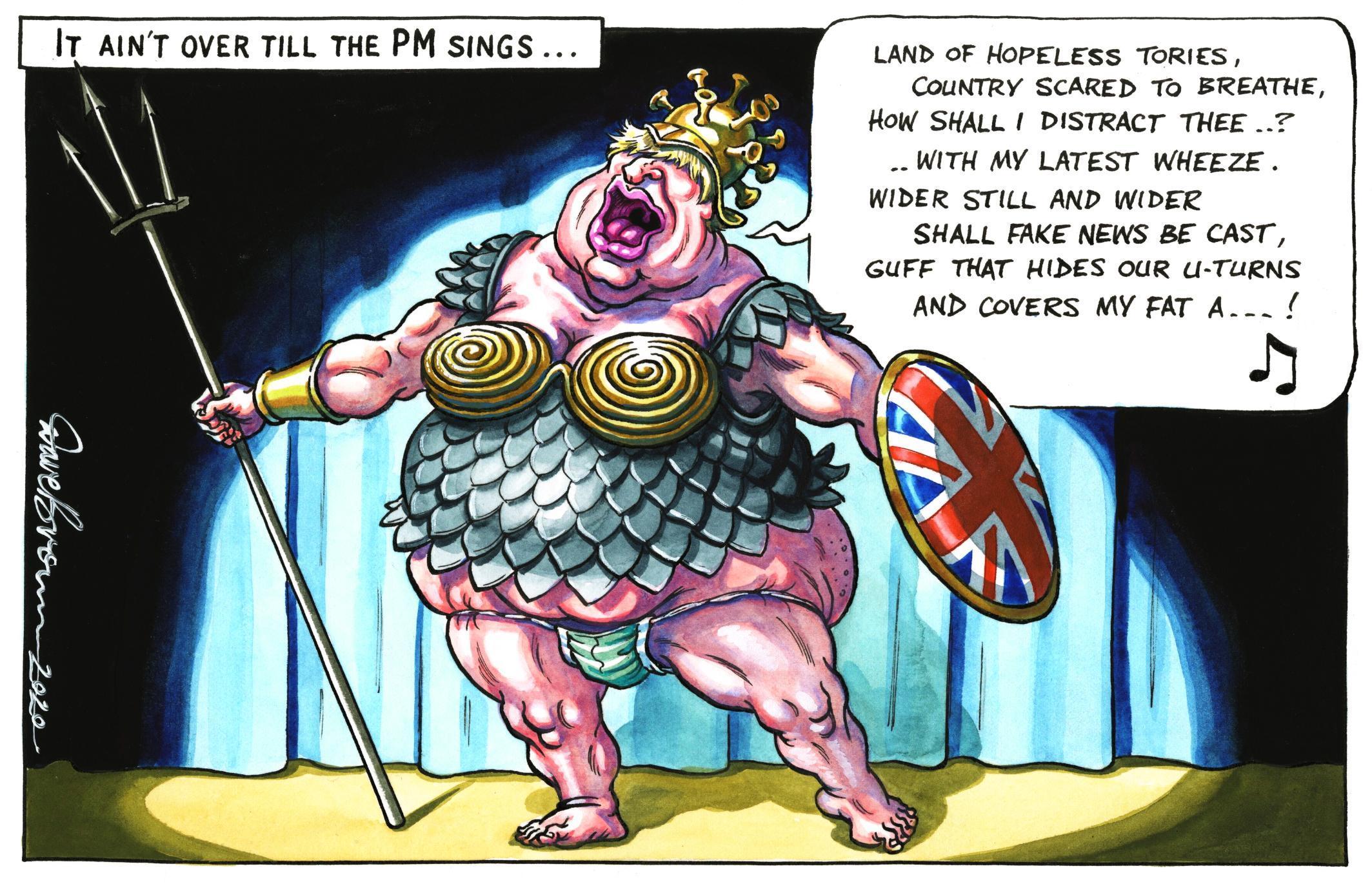The government’s incessant U-turns have revealed a deeper issue with Boris Johnson’s administration
Editorial: Ministers decide, as the old adage goes, and those judgements have to be as considered and as sound as possible. Something has evidently gone very wrong with that procedure

It is fair to say that, given his colourful track record, hopes were never high that an administration led by Boris Johnson would prove a global paradigm for good governance; but really, has it come to this? A U-turn a week?
One of Mr Johnson’s predecessors forged a formidable reputation for determination and consistency of purpose – “you turn if you want to; the lady’s not for turning”. Since then Tory prime ministers have generally been of a more pragmatic mind. But Mr Johnson, even as he enjoys his 80-seat parliamentary majority, the largest since the days of the Iron Lady, seems happy to be blown around as easily as his famous blond mop on a stormy Highland hillside.
In a way, it is refreshing, almost endearing. Theresa May suffered from trying to give the impression of firm leadership, before inevitably giving way, ending up with the worst of worlds. If some second – or third – order policy is a dud, unnecessarily damaging the government and hated by the public, then why not ditch it at the earliest opportunity, chucking in an insincere apology if needs be? If it takes Marcus Rashford to show the government the error of its ways on free school meals, Mr Johnson might ask, then so what if it makes people happy to alter the policy? If the 1922 Committee is restless, give ’em what they want. If a cave-in prevents Keir Starmer winning a Commons vote, then drop the offending clauses in whatever bill he is moaning about.
Indeed it is true, to borrow a phrase, that a changed policy is better than a bad policy. Most of the government’s U-turns and other directional deviations have been in the national interest. Would that there might have been a few more – the sacking of Dominic Cummings, say, or a confirmatory vote on the terms of Brexit (still unknown).
The question, of course, is just why this government is so prone to half-baked initiatives. Such evidence as there is suggests, after all, that it spends a good deal of money on researching public opinion. The civil service, much derided, isn’t so different to the one that served Mr Johnson’s predecessors with similar efficiency. The challenges of the moment – Brexit and the coronavirus pandemic – are different in scale than for many years, especially taken together, which would certainly add to the burden on the machinery of the state. But it does not explain why policies do not seem to have been properly developed and politically considered before being announced, implemented and abandoned.
Ministers and powerful advisers such as Mr Cummings explicitly blame the civil service, the inchoate cabinet office, the power of the Treasury and the various woolly quangos lumbering around Whitehall for the fiascos. Top civil servants have been retired and their posts politicised; the Treasury partly subsumed into No 10; bodies such as Public Health England and Ofqual put under fresh management. We even have a former Australian prime minister sharing responsibility for trade policy with the secretary of state. Radical stuff.
Yet these moves towards a more presidential control centre within No 10 seem unlikely to succeed for two reasons. First, that centralisation is no panacea, as history shows. Second, that no administrative restructuring can ever compensate for a lack of good old-fashioned political judgement.
Ministers decide, as the old adage goes, and those judgements have to be as considered and as sound as possible. It requires a cabinet comprised of people capable of making the right choices at the right time on the right advice, and with the government serving its purpose of refining ministerial whims and manifesto promises into workable and, if possible, popular laws and policies.
Something has evidently gone very wrong with that procedure. The irony, if such it is, is that this very confusion means that responsibility cannot be easily allotted for each successive messy U-turn. Time for another rethink, then, on why this government is so bad at governing.
Join our commenting forum
Join thought-provoking conversations, follow other Independent readers and see their replies
Comments